10 Fascinating Moments from Netflix's 'Court of Gold' Documentary
10 Fascinating Moments from Netflix's 'Court of Gold' Documentary
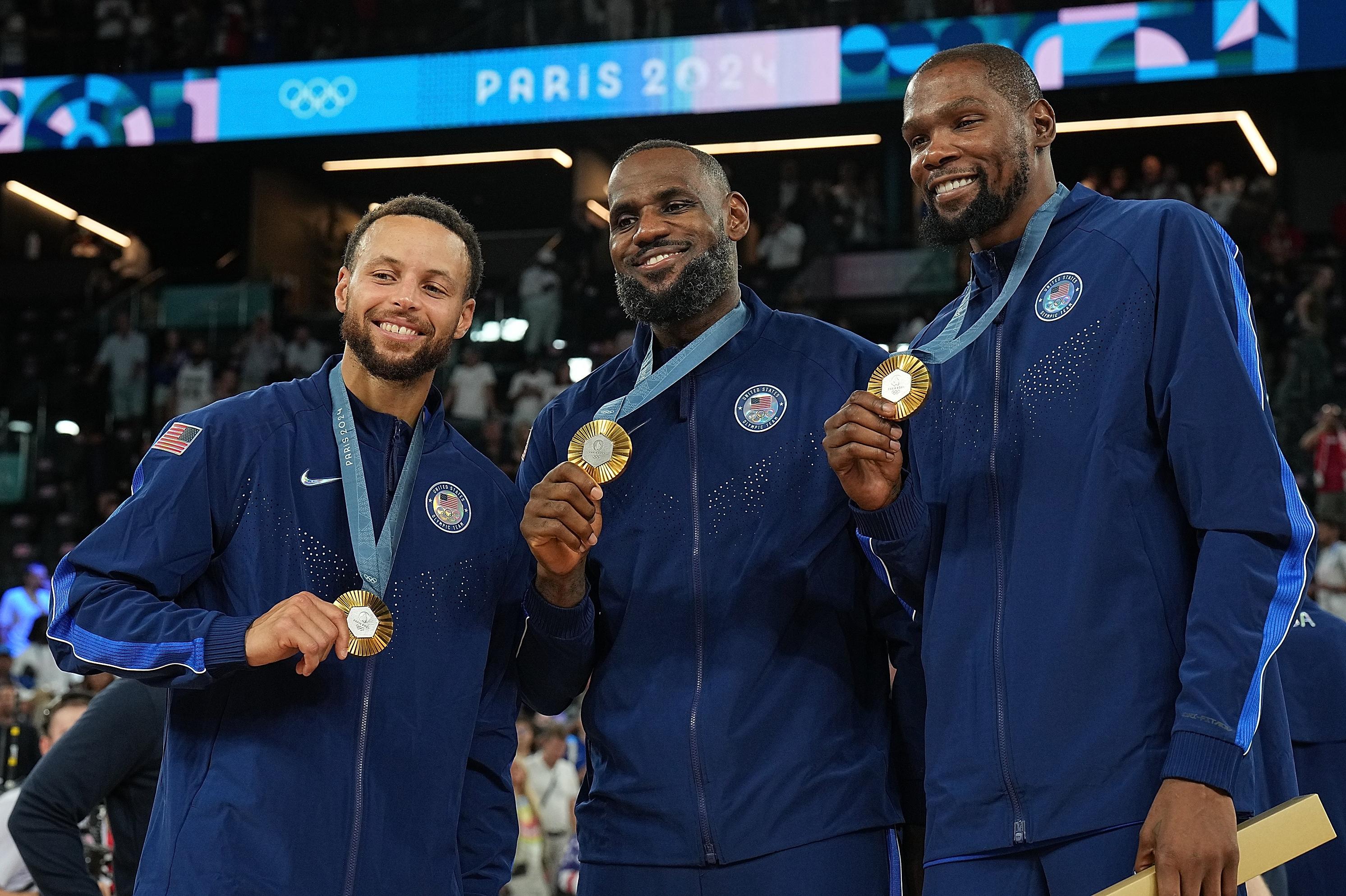
On Tuesday, Netflix released an in-depth and behind-the-scenes look at the 2024 Olympic basketball tournament in Paris, France, entitled Court of Gold.
The documentary series takes a close look at the squads that USA, France, Canada and Serbia took to the Games, and it gave us plenty of memorable moments and quotes.
Below, you'll find 10 of our favorites.
Steve Kerr's Coaching
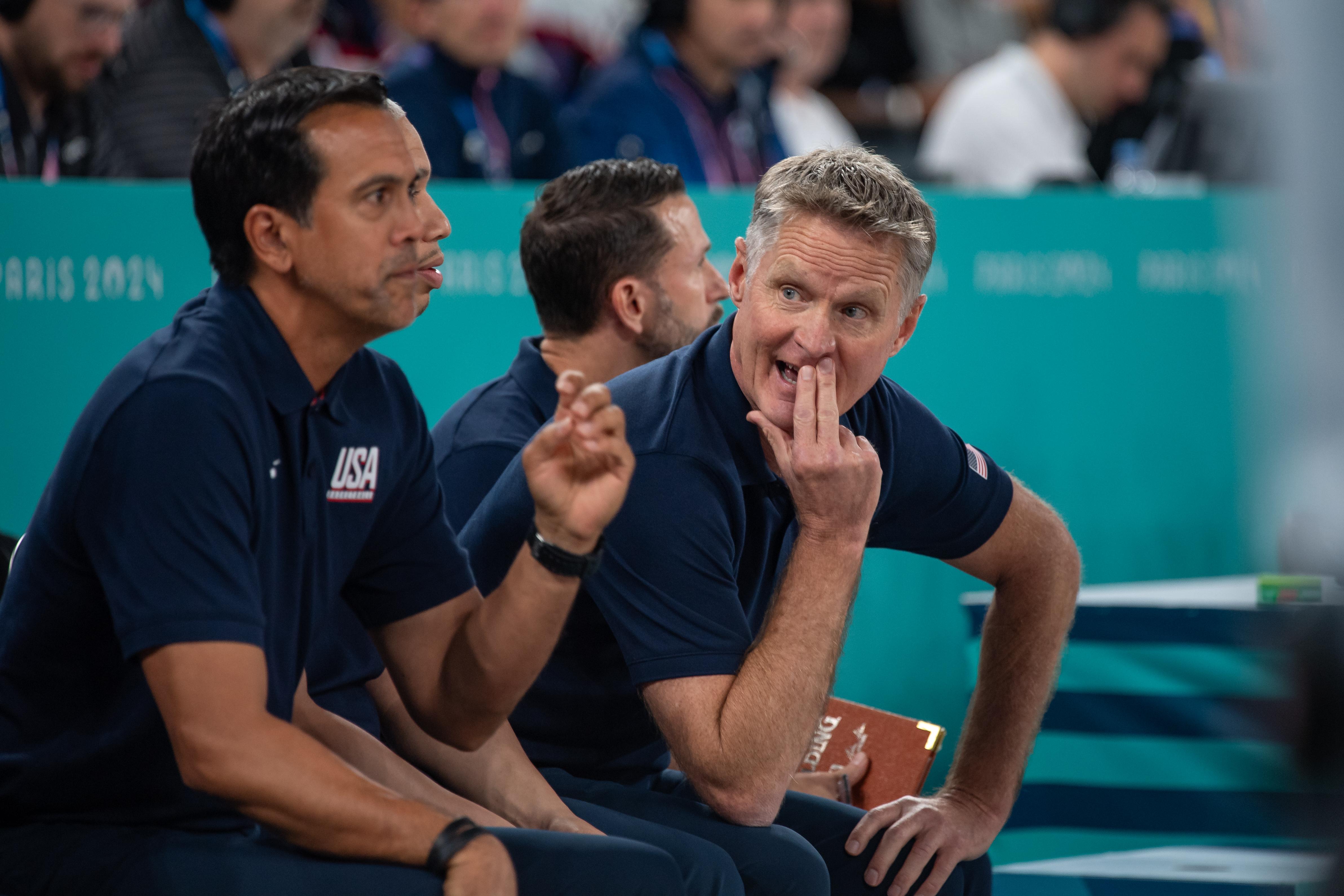
Steve Kerr has been the head coach of Team USA's top basketball squad since 2021. And after their disappointing fourth-place finish at the 2023 World Cup, he was under a bit of a microscope heading into the tournament in Paris.
If you think back to when those games were actually happening in the summer of 2024, some of his decisions were among the hottest stories coming out of the Olympics, particularly the lack of playing time for reigning NBA champion Jayson Tatum.
This documentary gives us a pretty good look at why he approached the team and tournament the way he did.
Early in Episode 1, he explains that there are 12 future Hall of Famers on the roster and acknowledges that playing 12 Hall of Famers in a 40-minute game will be hard. In the same episode, an illuminating conversation with Anthony Edwards shows Kerr praising the young star's athleticism while also imploring him to do the little things (like boxing out and rebounding). In Episode 4, he explained why he loves that Bam Adebayo already does those little things.
His philosophy for Team USA is much easier to grasp after watching this documentary. And when you combine that with the fact that his team did indeed win gold, it's an awful lot harder to nitpick his coaching of this group.
'You Think [Chemistry Is] Going to Help You When You Have to Guard Steph?'
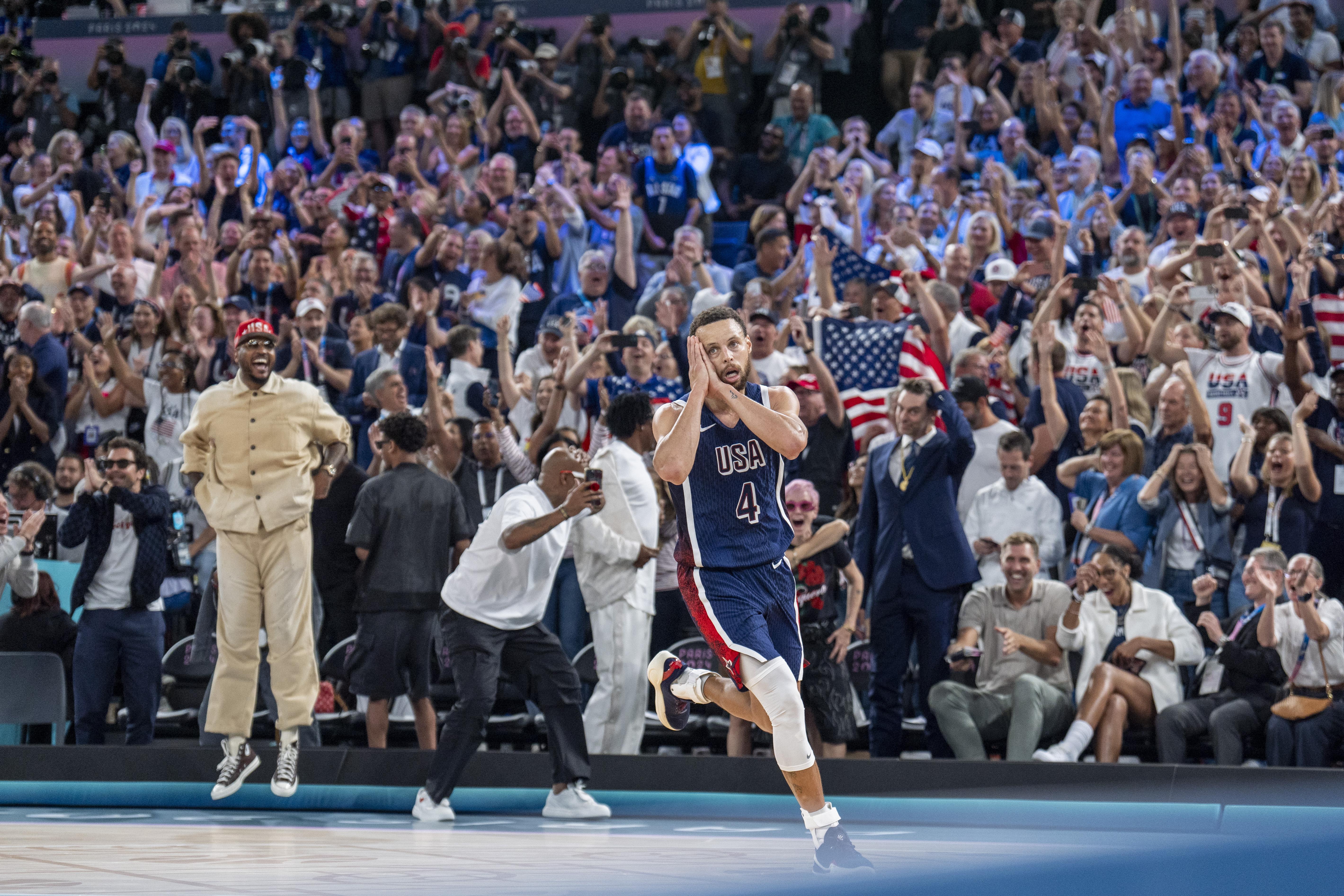
The biggest star of this documentary could very well be Kevin Durant. He's long been an NBA superstar who almost always seems to find another gear for the international team.
At one point in the documentary, Kerr rightfully called him "the greatest men's Olympic player of all time."
And he might be good for the best quotes about these Games, too.
Early in the doc, there's a fun back-and-forth between Durant's interviews and those of some of France's stars. Evan Fournier, in particular, notes his team's continuity and chemistry as strengths for potential matchups against Team USA.
After hearing that sound, we're quickly treated to a perfect quip from Durant on his former NBA teammate, Stephen Curry.
"You think that's going to help you when you have to guard Steph?"
Spoiler alert, despite pushing Team USA to the brink in the gold-medal game, KD was right. Curry's now legendary barrage of triples at the end of that contest was all skill and very little chemistry. And it was the difference between silver and gold for the Americans.
In fact, if Curry hadn't bailed Team USA out against Serbia in the semifinals, when he had 36 points on 12-of-19 shooting, they might've even played for bronze.
Anthony Edwards' Bravado
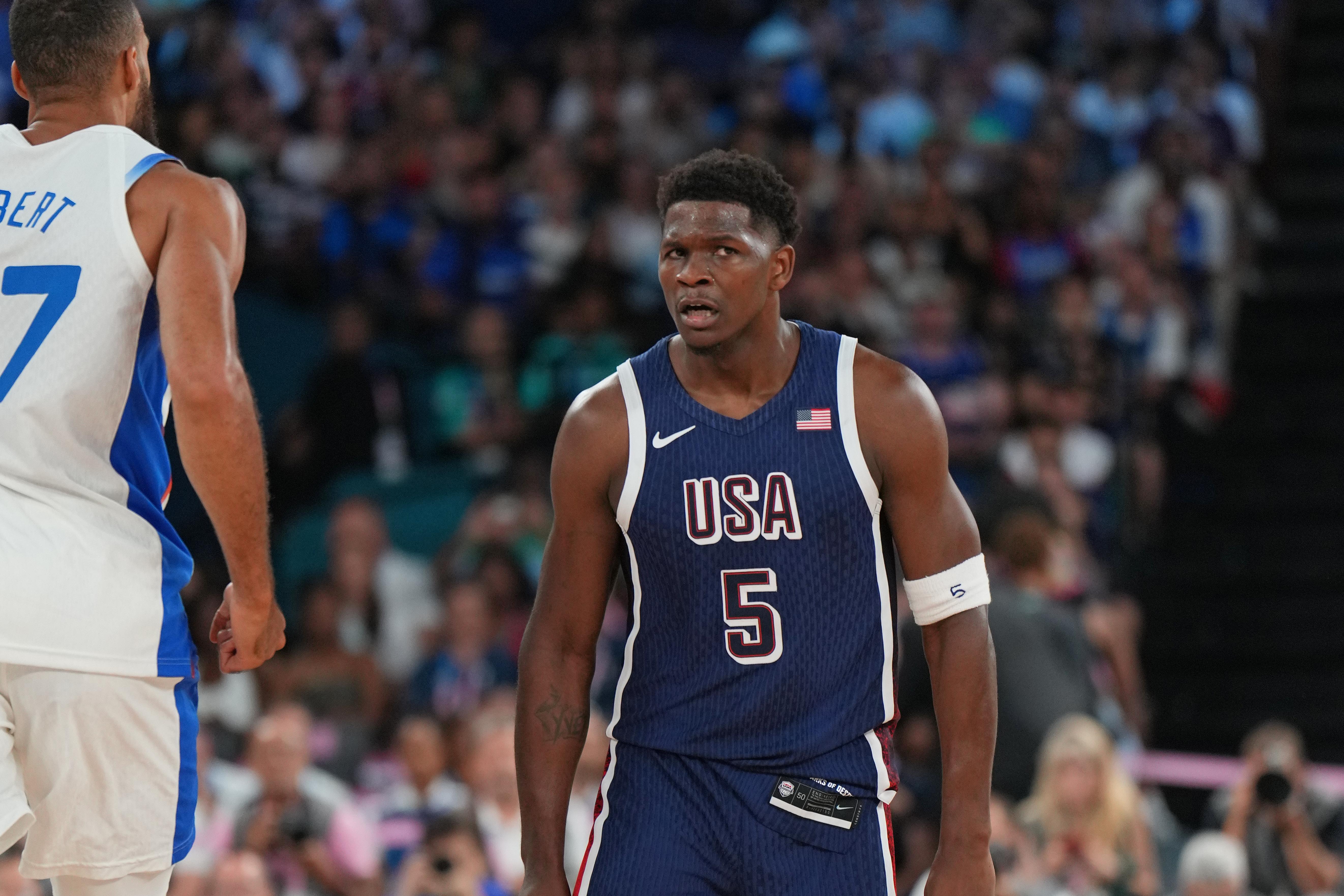
Anthony Edwards is another obvious star of this documentary. The camera loves him. Seemingly every quote is gold. And some of the interactions highlighted here are another reminder of how wildly confident he is.
Early on, he's shown talking to Joel Embiid and Barack Obama. Yes, former President of the United States Barack Obama. And the moment those two start to (very gently) needle him, Edwards tells both to "stand down." Yes, "stand down" to one of the most famous and powerful people in the history of the planet!
Later, while members of the team are on the bus and discussing which events they want to watch, Edwards insists that he wouldn't finish last in a 25-meter swim against Olympians (though he has the self-awareness to admit he can't win a 50). He thinks he can score a point on Olympic-level table tennis players.
We already knew Edwards was one of the NBA's best and most self-assured players, but this documentary drove that home even further.
'I've Never Had the Chance to Be Normal'
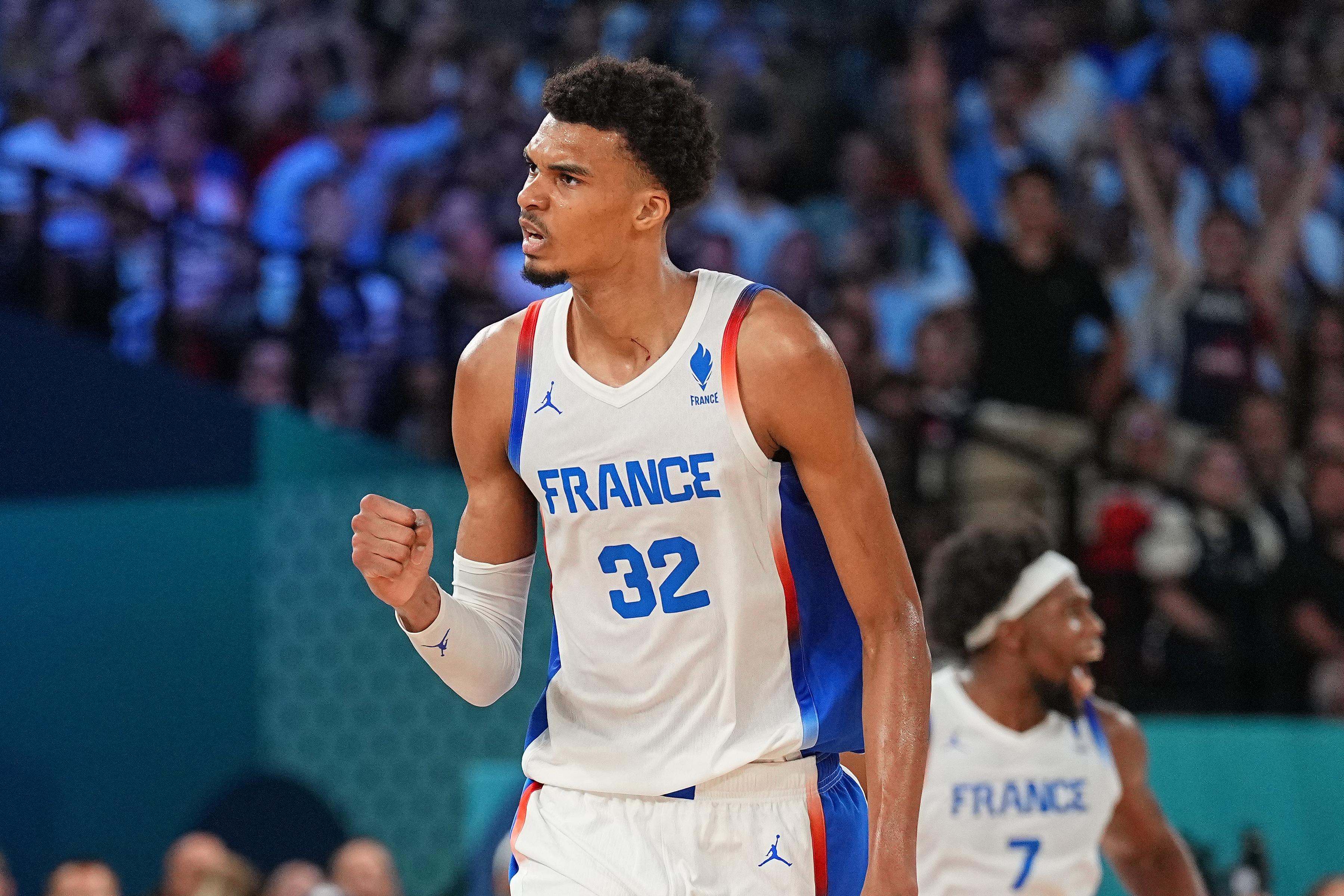
This documentary doesn't just focus on the Americans. As mentioned above, France, Canada and Serbia all get plenty of airtime, too.
And that meant some deep dives, specifically, on the rise of Victor Wembanyama and his first Olympic tournament.
In one interview, Wemby, who's already on track to make an All-NBA team in 2024-25, candidly says, "I've never had the chance to be normal."
The comment was in reference to his height, and he later added that his meteoric rise has happened, in part, because he recently decided to embrace his self-described abnormality.
Nicolas Batum said that most players aren't as good as Wembanyama, nor are they as tall. Checking both boxes the way he does has made Wemby a superstar. And as he said, leaning into his uniqueness helped him dominate in Paris.
'The Game Saved My Life'
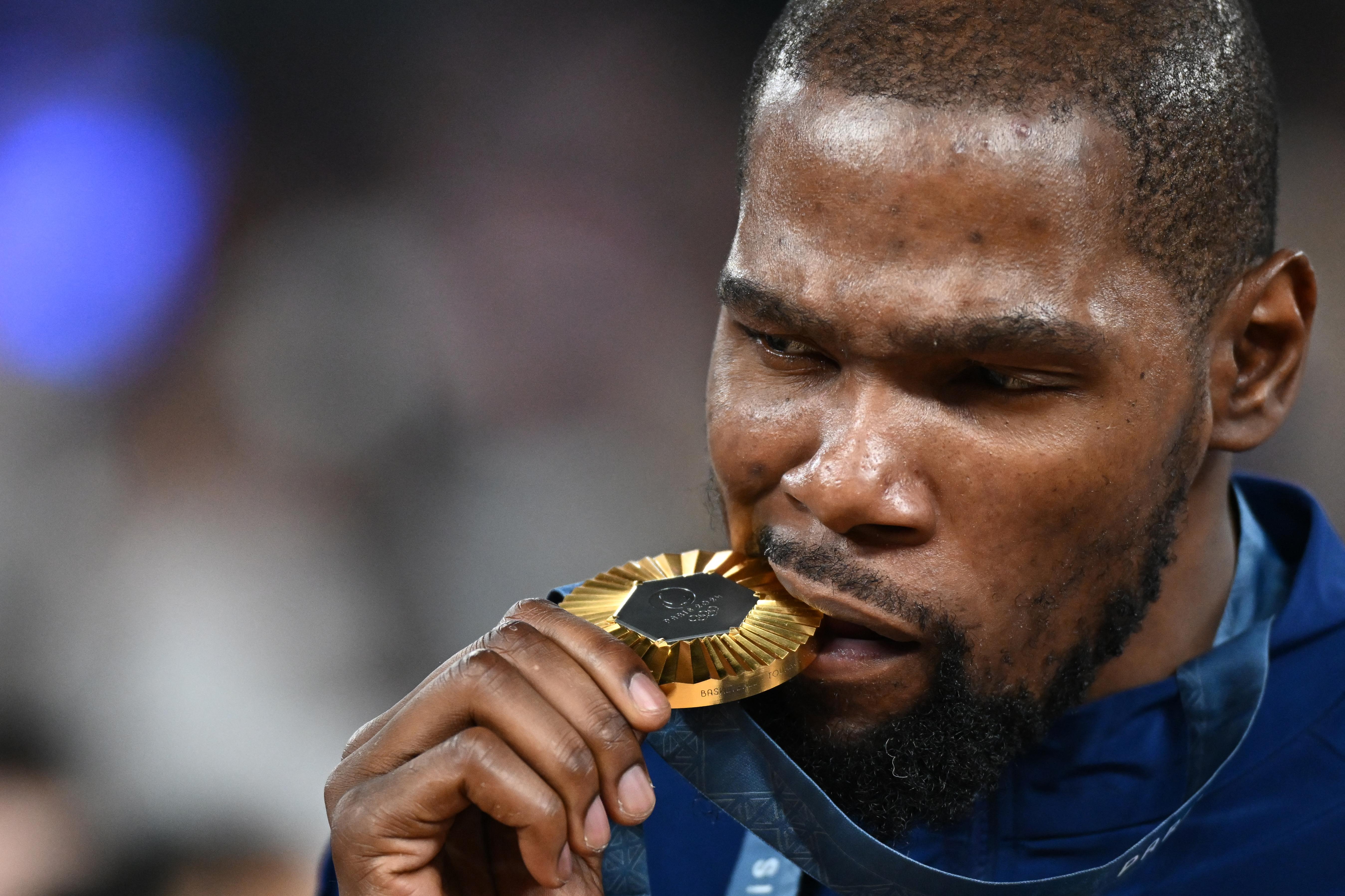
Perhaps the highlight of the documentary came early on and actually debuted online before the episodes were live on Netflix.
While discussing how it felt to represent his country, the interviewer told KD, "I can tell how much this means to you."
The former NBA MVP and current all-time leading scorer in Team USA's Olympic history (a record he broke during this tournament) broke down:
Kevin Durant tearing up about playing on the Olympic stage is a moment to witness.
— Netflix (@netflix) February 17, 2025
Court of Gold premieres in 12 hours. pic.twitter.com/jWSAC9pA5a
For years, Durant has been held up as the ultimate example of someone who just loves the game. Or even more specifically, as the best example of someone who plays out of a love for the game.
This documentary served as further evidence of that.
"Some people are basketball players," Dwyane Wade said in the documentary's second episode. "Some people are role players; they're good teammates. He’s a hooper. KD needs a basketball and a rim, and he’s gonna be KD. That’s a purist in the game of basketball.”
That description of Durant has rarely been clearer than it is during Court of Gold.
Dillon Brooks' Mindset

Throughout NBA history, the league has had plenty of heels.
From Bill Laimbeer to Draymond Green to Patrick Beverley, the game has had its fair share of trash-talking, line-blurring "bad guys."
And right now, the biggest one may be Dillon Brooks.
But while his in-your-face, seemingly hotheaded and sometimes floptastic style may rub plenty of fans the wrong way, there's no doubt it generally helps the teams he's on.
In the NBA, his teams' net points per 100 possessions is comfortably better when he's on the floor. And in the Olympics, he averaged double figures for Canada and shot 37.5 percent from deep.
And all of that is the product of what almost seems like an on-court persona.
In the fourth episode of the doc, Brooks explains that his demeanor and penchant for trash talking are limited to games. He described himself as "chill" at a dinner with his family, and that's exactly how that scene felt.
Surrounded by his family and other loved ones, the snarl that so commonly adorns Brooks' face in the NBA was nowhere to be found. He was smiling ear to ear, particularly when his mother told the story of him trash-talking Jamaal Magloire during a game.
The scene gave viewers a reminder that all of these men are more than what we see during NBA and FIBA broadcasts.
Locker Room Speeches
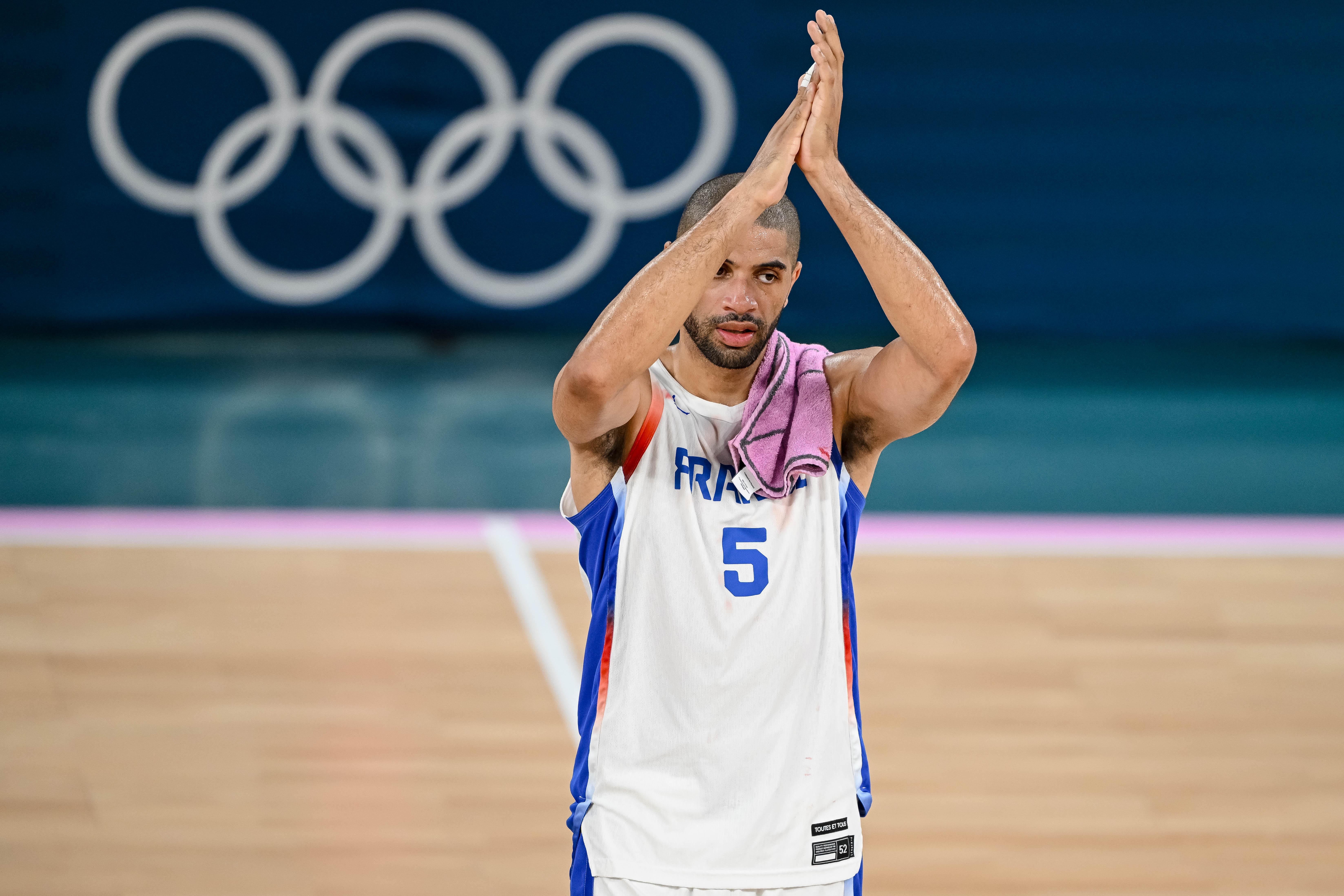
The great sports locker room or mid-game speech has become almost mythical.
Plenty of movies and TV shows have tried to capture it. Some have scripted some powerhouses. Billy Bob Thornton's "I want you to think about Boobie Miles, who is your brother," from Friday Night Lights or Christian Bale's "You gotta win a title for you, for me, for Lowell," from The Fighter are chill-inducing.
Getting the chance to see one of those moments in real life, even if out of a player or coach's frustration, is awesome. And Court of Gold gave us more than one.
Svetislav Pešić ripping into his team for giving up 23 points in 17 minutes to Kevin Durant during group play was one of the highlights of the entire series. His halftime speech during the medal round game against Australia provided an electrifying start to the series' fifth episode.
Nicolas Batum laying into his French teammates during an eventual blowout loss to Germany served as a fun bit of foreshadowing for a medal-round rematch.
The Canadian players lamenting their missed opportunity after losing their first knockout-round contest was gut-wrenching.
And of course, all of the above was unscripted. Court of Gold gave us largely unfiltered access to the kind of raw emotion that drives the world's best athletes and coaches.
'That Was Probably the Greatest Game I've Ever Been a Part of'
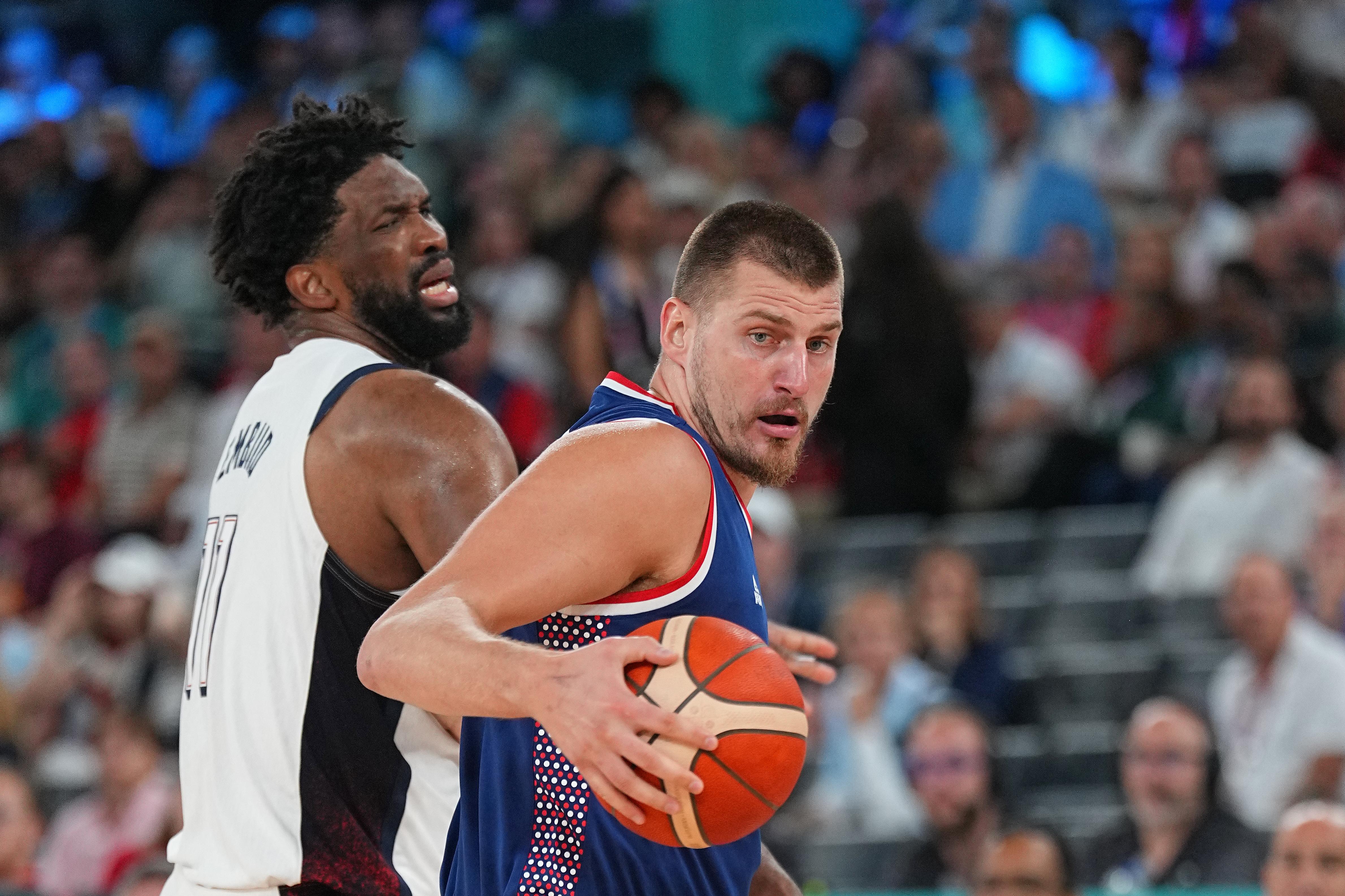
The gold-medal game between Team USA and France was a classic, but as Dwyane Wade said in Court of Gold, consensus entering the tournament was that the Americans and Serbians had the two best teams.
And despite losing to Team USA twice in the Games leading up to the knockout round, Pešić and the Serbians believed they could pull off the monumental upset.
"If nothing else, we can stand against that Team USA," he said. "It's just one game. Not best out of three or out of five. It's just a single final game. Everything is possible when you play just one single game."
At the start of that semifinal, the possibility of the Americans losing felt very real.
The Serbians led after one quarter by eight points. Their lead eventually ballooned to 17. But the jumpers eventually started rimming out for the underdogs.
And despite having Nikola Jokić, who Kerr described as the best player in the world, Serbia gave Team USA just enough of an opening to eek out a win and get to the final.
Afterward, Kerr, who won five NBA Finals as a player and four more as a coach, said, "That was probably the greatest game I've ever been a part of."
‘99.99999 Percent … Would Have Missed That Shot’
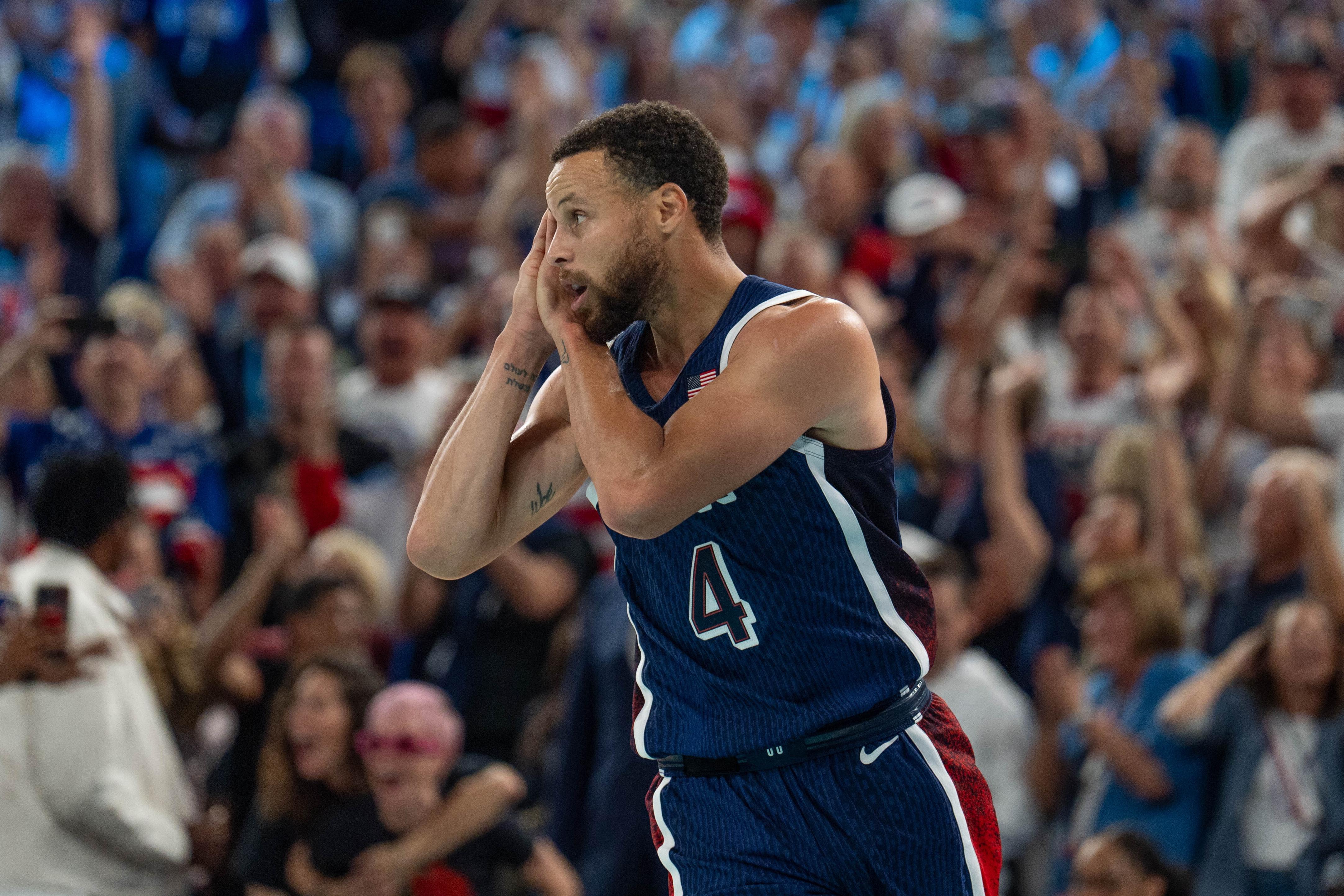
Without Stephen Curry, Team USA simply would not have won gold in Paris.
His hot shooting kept the Americans within striking distance of Serbia. He had 36 points and the game-icing free throws in that one.
Then, in the gold-medal game, with France threatening to upset the favorites, Curry put on one of the greatest shooting displays in the history of the sport.
With less than three minutes to play and the Americans only up three, Curry drilled a three off a behind-the-back feed from LeBron James. Less than a minute later, he got Batum off his feet and drilled another in the face of the closing help defender. Forty seconds after that, he drilled a catch-and-sidestep triple from the top of the key.
And finally, with just under a minute to go, he hit what instantly became one of the most iconic shots we've ever seen. After being double-teamed, he gave the ball up to Durant, who instantly threw it back (all the Americans were understandably feeding Curry down the stretch). After the catch, Curry took four dribbles, stepped back and hoisted a moon ball over the outstretched arms of Batum and Evan Fournier that dropped. Team USA was up nine. Curry had hit four threes in the final three minutes. Noah Eagle burst out a spontaneous, "Golden dagger!" And Curry jogged down the floor with his hands together and alongside his tilted head, signaling, "Night, night."
The entire stretch felt unreal. Literally. If you were watching, you probably remember thinking some variation of, "How is this happening? How is he doing this?"
And the French likely had similar thoughts.
Batum articulated it well after the game.
"99.99999 percent … would have missed that shot," he said. "Only one guy could have made it. Him."
For player who won four NBA titles and will go down as one of the 10-15 best players in league history, having one of the best moments of his career happen at the Olympics feels almost impossible.
But that's exactly what this was.
LeBron James Hints at His Post-Playing Life
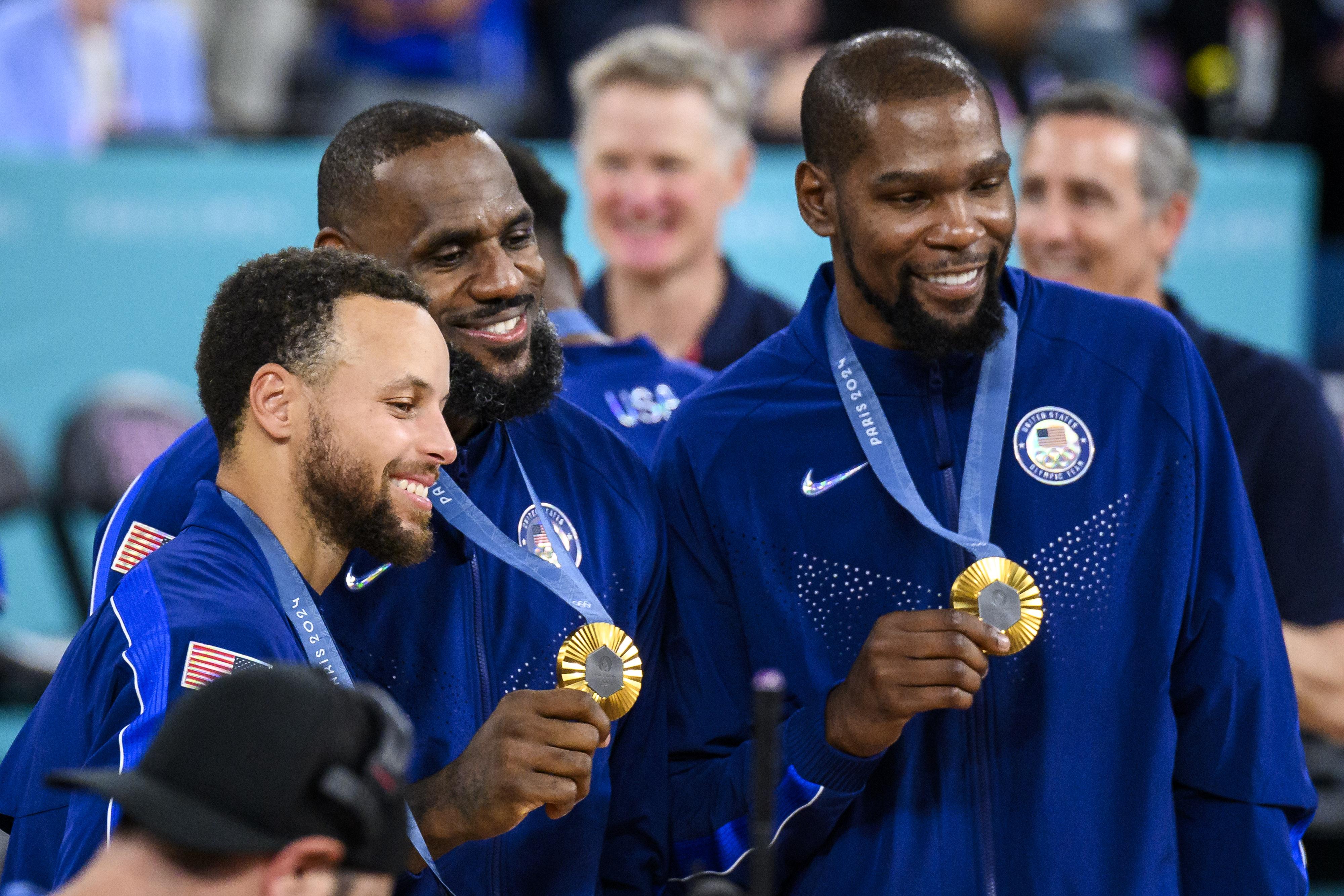
LeBron James, who won this tournament's MVP award, will almost certainly never play in the Olympics again. In 2028, when the Games are in Los Angeles, he'll be 43 years old.
But whenever LeBron hangs up his sneakers for good, you can be pretty sure he won't simply fade into obscurity.
As one of the greatest basketball players of all time, he'll remain attached to the game long after he retires. And one way he could do that is by coaching.
The comments were made in jest, but he hinted at that possibility for the next go-round.
“Guarantee we win gold," he said about a LeBron-coached Olympic team. "Guarantee.”
Again, he may have been joking, but think about it. It's really not outlandish.
Full-time, year-long coaching can be a grind. If LeBron isn't interested in that, being an assistant for an Olympic run could be exactly the kind of limited assignment that would appeal to him. If he is interested in a more involved gig, the Olympics could be a good way to see how he feels about it.
He'll be in his mid-40s for the next Olympics, but don't rule out LeBron representing the United States at least one more time.











